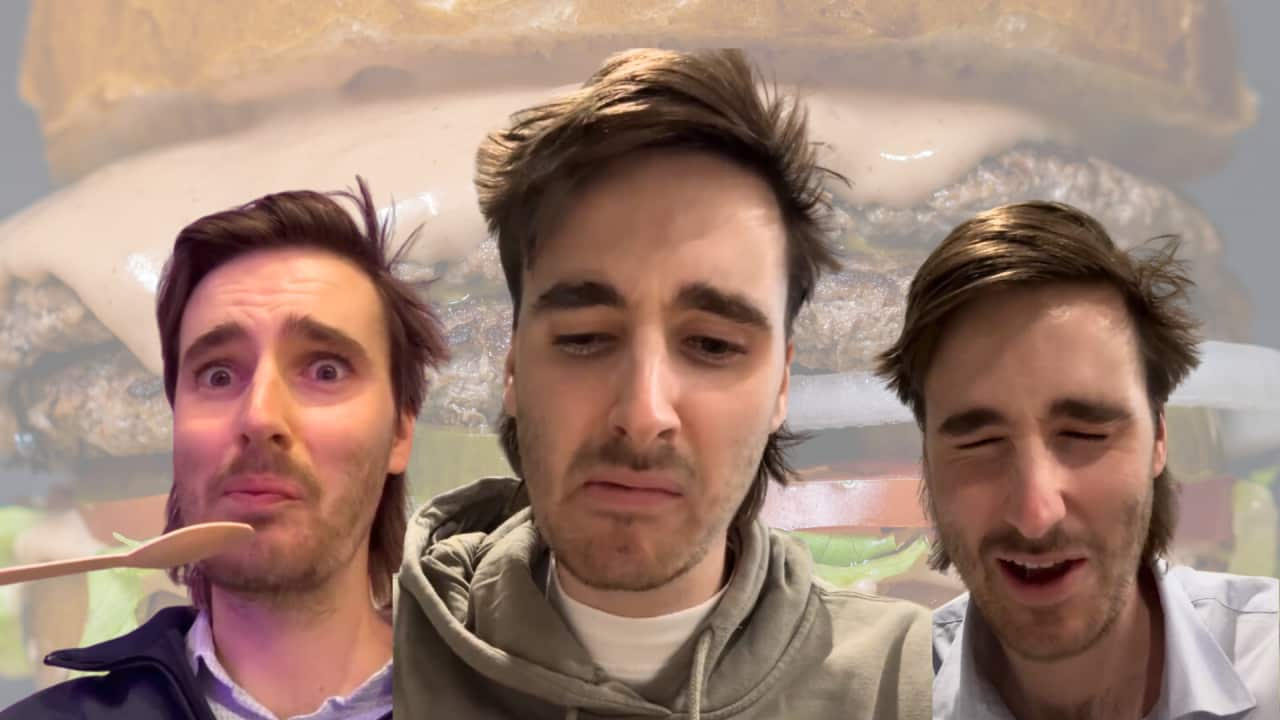The night before her daughter's first birthday, Anya (not her real name), felt a wave of emotion wash over her.
"I'd been enjoying being a parent, and then … I just felt this awful grief. It was like her first birthday was making it reality … [that] this is forever," she told The Feed, recalling when she was 25.
"I was living by myself looking after a baby, which is incredibly lonely and isolating when those all-night screaming fests happen … and you're the only one there."
A single parent since her pregnancy, Anya could not fathom how much her daughter would impact her life — particularly when her daughter began experiencing depression, which she often expressed through anger.
Eventually, Anya stopped working to take care of her, and soon found herself in debt, socially isolated and dealing with her own mental health challenges.
"I love my daughter — I think she's an amazing person. She has brought my life a lot of meaning, a lot of joy, but it was also the stupidest decision I've ever made," she said.
"I shouldn't have done it."
Part of Anya's regret in becoming a parent is about losing freedom and opportunity — made more difficult by raising a child solo.
"[Without my daughter], I would've been financially better off. I would've been able to buy a house much more easily. I wouldn't be in so much debt. I would've been able to travel.
"I might've had other relationships that weren't available to me."
'Ripped my life apart'
After Chris (not his real name) fathered a child during COVID-19 lockdowns, his world fell apart.
His partner lost her job as a personal trainer, so he took on the full-time role as breadwinner, and the pair both spiralled into postnatal depression.
Their child, now three, has autism.

Experts say parents feel societal pressure to be “the perfect parent”, which can lead to burnout and feelings of regret. Source: Getty / skynesher
Chris said parenthood took an insurmountable toll on the couple and zapped any joy within their relationship. They no longer had sex or did activities they enjoyed together, like attending pop-culture festivals and cosplaying.
After years of arguing and therapy, they separated.
"The day after my wife left, she took him [my child]. It broke my heart … it ripped my life apart," Chris said.
"Being away from him is actually the worst part of all this … he's my blood, he's part of me."
The 'unsayable' thing
A Reddit forum called "regretfulparents", where parents openly share their feelings around parental regret, has grown from 400 members in 2019 to about 141,000 users today.
TikTok creator Kelley Daring has also increased awareness of the topic, sharing anonymous stories of people’s parental regret that have amassed hundreds of thousands of views.
While data on parental regret in Australia is limited, a 2021 peer-reviewed study, published by the Center for Research on Personality Development at SWPS University in Poland, found that up to 13 per cent of Polish parents in the emerging and middle adulthood age group regretted parenthood.
Another 2021 report from data research firm YouGov surveyed 1,249 British parents and found that one in 12 regretted becoming parents.
Dr Imogene Smith, a clinical psychologist and researcher at The Cairnmillar Institute, which offers counselling services and mental health education, said while there aren't many taboo topics in 2024, parental regret remains an "unsayable" thing for many.
"It's something people feel ok with joking about … [but] when it becomes a serious conversation, it's difficult for most people not only to talk about, but to hear, to listen to."
What causes parental regret?
In most cases, parental regret isn't about the child, but the experience of parenting, Smith said.
Societal pressure to be "the perfect parent" can lead to exhaustion, burnout, feeling trapped and a negative self-image and eventually, regret, she added.
A difficult financial situation and single parenting can make things worse.
"Parental regret is connected to difficulties of living up to — and identifying — with the ideals of parenting."
She said the pressure to be a "kangaroo parent" (maximise skin contact with your child), not be a "helicopter parent" (over-involved) and conflicting advice caused people to question themselves.
"Now more than ever, people feel that they need to be a good parent, and dads — for the first time – probably feel they need to be very connected and attached.
"I think that messaging is part of the issue for people. They're like, 'Tell me how to do this. Where's the book?'
"There's a lot of people crying out for help."
The curse of the contemporary parent
Smith said most women today have to work full-time after having a child, which essentially means they’re working two full-time jobs.
"A mum's role historically, for better or worse, was within the home. So it had a very clear definition and very clear expectations around it.

Parental regret is directly linked to poor mental health, and those experiencing it are encouraged to speak out. Source: Getty / Trevor Williams
Sydney-based psychologist Sian Khuman agrees, saying parents may struggle to balance parenthood and their career, which makes them feel inadequate.
"There's this kind of constant feeling that you're never doing a 100 per cent great job in either domain. And that can lead to feelings of guilt … and that's really difficult to sit with."
Some people don't enjoy parenting as much as other people, and that's ok.
People experiencing feelings of parental regret are encouraged to seek help.
"Parental regret is not something to be ashamed about," said Khuman, who added she's seeing more parents experiencing parental challenges than she used to.
"There are more people coming in and expressing burnout and the impact [parenting] has on the self — as well as [on] the parental relationship or the couple relationship," she said.
How to help someone with parental regret
Friends should also listen without judgement if they can, Smith added.
"Avoid shock and outrage. Just stay calm, be curious and listen to their experience, because I don't think they get a chance to talk about it very often in a heartfelt way.
"If you don't think you can hold that space for them, encourage them to speak to a professional who can."
Khuman advised people to avoid societal pressure that may force them into having children before they're ready.
"If you're feeling unsure of whether you want to have a child, go and speak to someone about it."
Living with shame
The relationship between Anya, now 44, and her daughter, now 18, has improved.
But Anya still experiences parental regret.
Her daughter continues to rely on her and — due to the cost of living — can't afford to move out.
"It feels like it's just going to go on forever — that she's going to stay dependent on me when I thought I'd get my life back."
Nevertheless, Anya now understands that her feelings around her daughter weren’t abnormal or "shameful"; that feelings for children can be complex.
"The way [her psychologist] put it was: 'You can absolutely love your child more than anyone else in the world and do anything for them — and also hate them at the same time'.
"It feels like a relief to be able to say that."
Readers seeking crisis support can contact Lifeline on 13 11 14, the Suicide Call Back Service on 1300 659 467 and Kids Helpline on 1800 55 1800 (for young people aged up to 25).
More information and support with mental health is available at beyondblue.org.au and on 1300 22 4636.
Embrace Multicultural Mental Health supports people from culturally and linguistically diverse backgrounds.
Family Relationship Advice Line:
1800 050 321, Monday - Friday, 8am - 8pm; Saturday (except national public holidays), 10am - 4pm.







